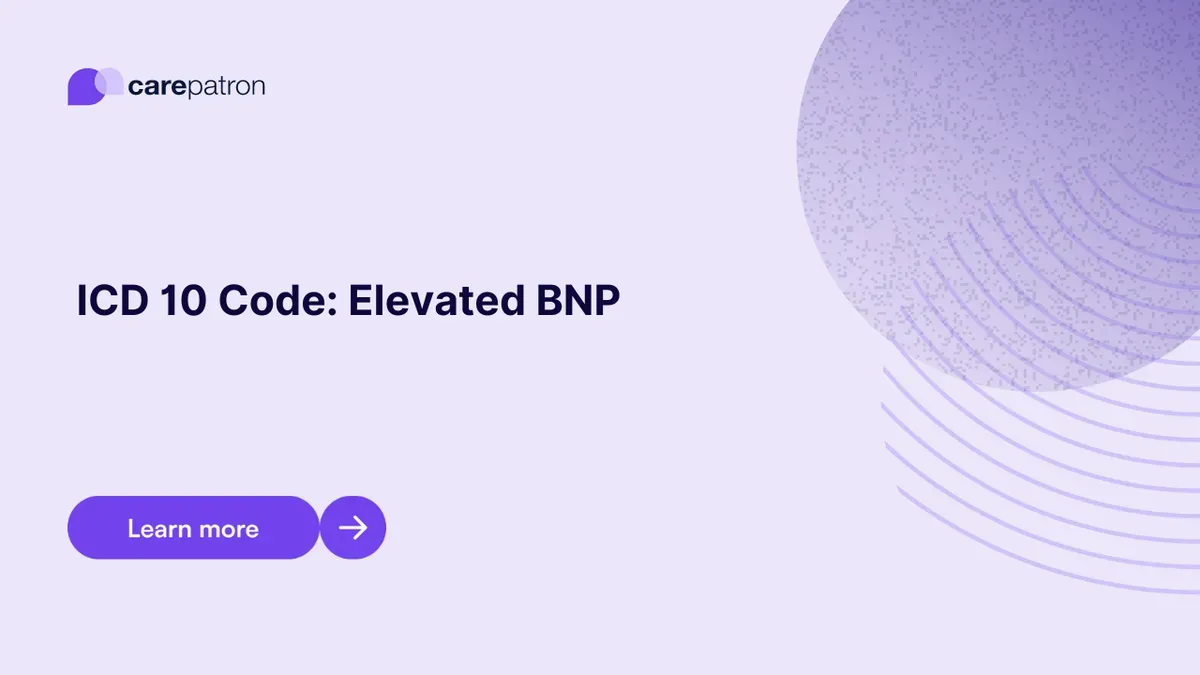
Elevated BNP ICD-10-CM Codes
Understand ICD-10 codes to accurately bill for elevated BNP levels and related cardiac conditions. Learn more.
Use Code
Commonly asked questions
Use an Elevated BNP ICD code when diagnosing cardiac conditions associated with elevated B-type natriuretic peptide levels.
Treatment depends on the underlying cardiac condition. It may involve medication, lifestyle changes, and interventions to manage heart health.
A diagnosis code for Elevated BNP signifies a cardiac condition characterized by increased B-type natriuretic peptide levels, often related to heart failure or cardiac dysfunction.
EHR and practice management software
Get started for free
*No credit card required
Free
$0/usd
Unlimited clients
Telehealth
1GB of storage
Client portal text
Automated billing and online payments
